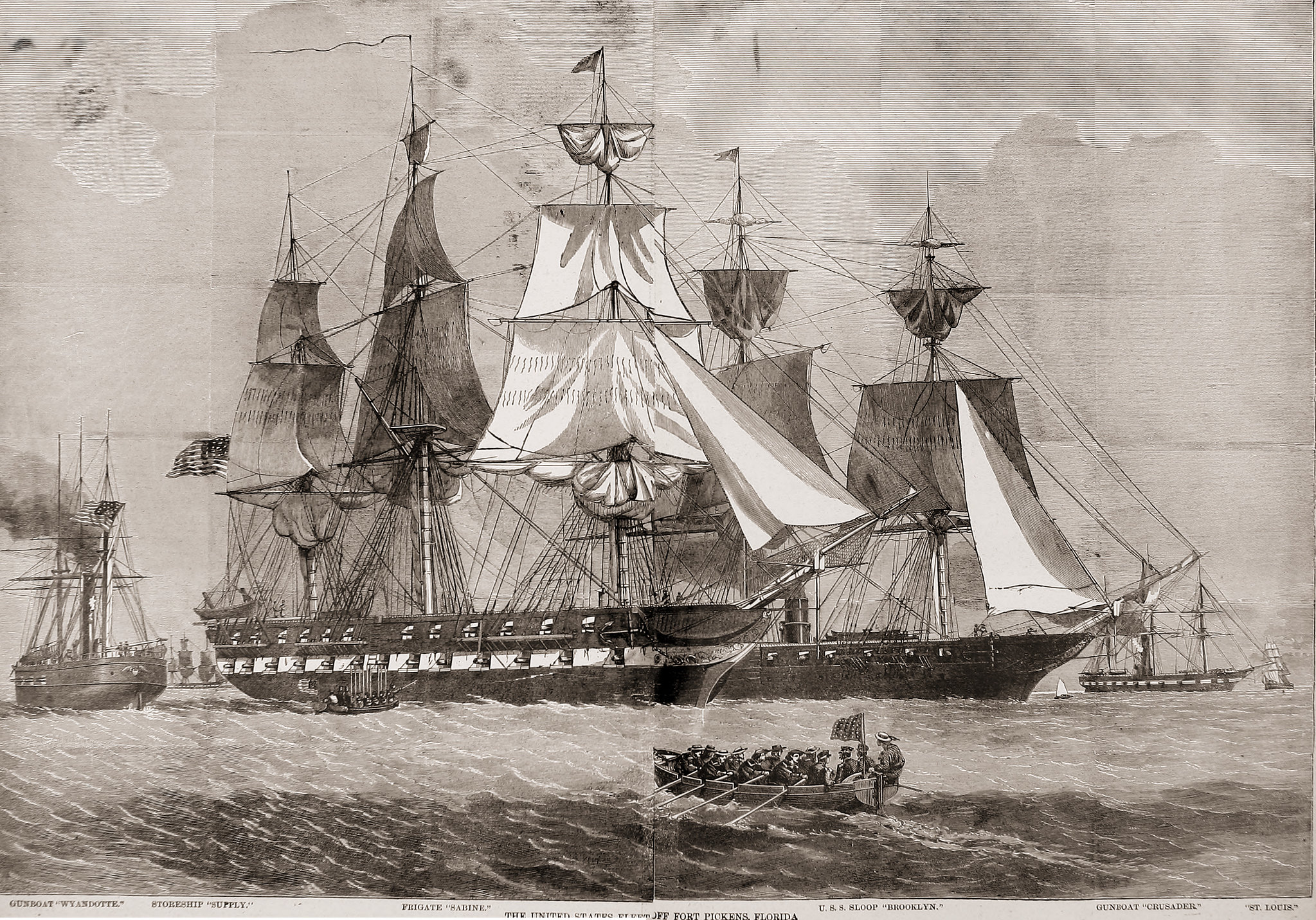 Harper’s Pictorial History of the Civil War by Alfred H. Guernsey and Henry W. Alden; copyrighted 1866 by Harper and Brothers; 1894 by Alfred H. Guernsey and Henry W. Alden; 1894 by McDonnell Bros; pub. The Puritan Press Co.; Chicago, Illinois
Harper’s Pictorial History of the Civil War by Alfred H. Guernsey and Henry W. Alden; copyrighted 1866 by Harper and Brothers; 1894 by Alfred H. Guernsey and Henry W. Alden; 1894 by McDonnell Bros; pub. The Puritan Press Co.; Chicago, Illinois
American Civil War Chronicles
The United States Fleet Off Fort Pickens, Florida
April 16, 2021The Second Re-Enforcement of Fort Pickens, on April 16, 1861
April 16, 2021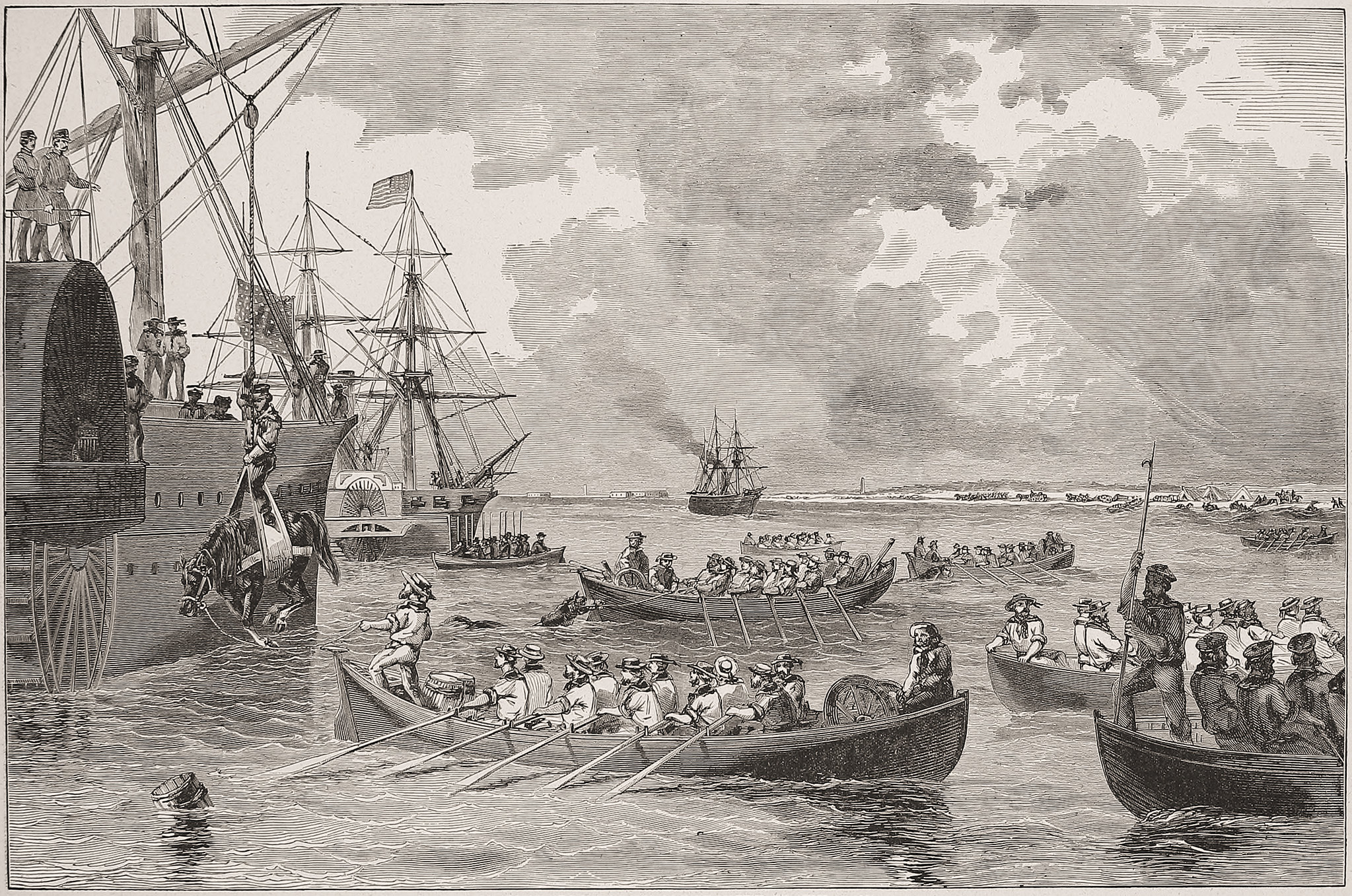
Harper’s Pictorial History of the Civil War by Alfred H. Guernsey and Henry W. Alden; copyrighted 1866 by Harper and Brothers; 1894 by Alfred H. Guernsey and Henry W. Alden; 1894 by McDonnell Bros; pub. The Puritan Press Co.; Chicago, Illinois
“There are now about three thousand men under arms in the City, all in the service of the U.S.”—Horatio Nelson Taft
April 16, 2021
TUESDAY, APRIL 16, 1861.
Another rainy day, a continuation of the Easterly Storm. The public buildings are all strongly guarded, from 150 to 300 men being quartered in each. There are now about three thousand men under arms in the City, all in the service of the U.S. Some thousands more from the North will be here this week The excitement at the Hotels is not quite so great tonight. I was at the “National” and “Willards.” NY papers scarce, could get only the Tribune. Came home about 9, read till 11. Cold wet evening. Everything looks gloomy.
The three diary manuscript volumes, Washington during the Civil War: The Diary of Horatio Nelson Taft, 1861-1865, are available online at The Library of Congress.
Russell makes it to Charleston
April 16, 2021
(April 16) Early next morning, soon after dawn, I crossed the Cape Fear River, on which Wilmington is situated, by a steam ferry-boat. On the quay lay quantities of shot and shell. “How came these here?” I inquired. “They’re anti-abolition pills,” said my neighbor; “they’ve been waiting here for two months back, but now that Sumter’s taken, I guess they won’t be wanted.” To my mind, the conclusion was by no means legitimate. From the small glance I had of Wilmington, with its fleet of schooners and brigs crowding the broad and rapid river, I should think it was a thriving place. Confederate flags waved over the public buildings, and I was informed that the Forts had been seized without opposition or difficulty. I can see no sign here of the “affection to the Union,” which, according to Mr. Seward, underlies all “secession proclivities.”
As we traversed the flat and uninteresting country, through which the rail passes, Confederate flags and sentiments greeted us everywhere; men and women repeated the national cry; at every station militia men and volunteers were waiting for the train, and the everlasting word “Sumter” ran through all the conversation in the cars.
The Carolinians are capable of turning out a fair force of cavalry. At each stopping-place I observed saddle-horses tethered under the trees, and light driving vehicles, drawn by wiry muscular animals, not remarkable for size, but strong-looking and active. Some farmers in blue jackets, and yellow braid and facings, handed round their swords to be admired by the company. A few blades had flashed in obscure Mexican skirmishes–one, however, had been borne against “the Britishers.” I inquired of a fine, tall, fair-haired young fellow whom they expected to fight. “That’s more than I can tell,” quoth he. “The Yankees ain’t such cussed fools as to think they can come here and whip us, let alone the British.” “Why, what have the British got to do with it?” “They are bound to take our part: if they don’t, we’ll just give them a hint about cotton, and that will set matters right.” This was said very much with the air of a man who knows what he is talking about, and who was quite satisfied “he had you there.” I found it was still displeasing to most people, particularly one or two of the fair sex, that more Yankees were not killed at Sumter. All the people who addressed me prefixed my name, which they soon found out, by “Major” or “Colonel”–”Captain” is very low, almost indicative of contempt. The conductor who took our tickets was called “Captain.” [continue reading…]
No serious casualty.
April 16, 2021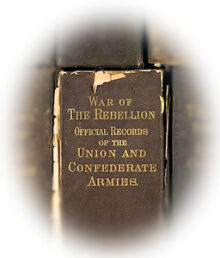
HEADQUARTERS SURGEON-GENERAL’S DEPARTMENT,
Charleston, April 16, 1861.
SIR: From the returns received from the various posts I have the unexampled and happy privilege of stating that no serious casualty has occurred during the vigorous action of thirty-three hours in reducing Fort Sumter. Four trifling contusions are reported at Fort Moultrie, but none at other posts, and it is a subject of equal gratification that even in the management of heavy ordnance by new recruits and unpracticed volunteers no accident to life or limb has occurred.
Immediately upon the flag of Fort Sumter being struck I proceeded to that fortress to tender my assistance and hospital at Mount Pleasant to Major Anderson, and received from him the pleasing intelligence that only four cases of slight injuries had resulted to his men. On Sunday a sad casualty occurred in saluting his flag, when the explosion of some loose cartridges beneath a gun struck down seven men. One was instantly killed, and another so seriously wounded that he died soon after reaching my hospital in Charleston; one remaining in the hospital, doing well under the care of Prof. G. G. Chisolm, of the medical college of the State, and four were removed with the garrison. The precipitation suddenly of several regiments upon me during the past few days, totally without any preparation of their surgeons, has required a large supply of medicines, instruments, hospital stores, &c., but I am happy to say they have received promptly all their requisitions.
Respectfully,
R. W. GIBBES, M.D.
Surgeon-General South Carolina Army.
Adjutant-General JONES.
Why was the armistice violated?
April 16, 2021
FLA., April 16, 1861.
To the ASSISTANT ADJUTANT-GENERAL,
Department of the East:
SIR: I have the honor to report that on the 14th instant it was reported to me that a small boat had landed at the wharf with a flag of truce, and that the bearer solicited an interview with the commanding officer of the post. I requested Lieutenant Slemmer, of the First Artillery, to accompany me, and repaired to the wharf. On my arrival the gentleman bearing the flag informed me that he was the bearer of a message from General Bragg, and that he was his adjutant-general. He then inquired whether I was the commanding officer of the fort. I replied that I was. He then stated that he was directed by General Bragg to inquire why the armistice in respect to re-enforcing Fort Pickens had been violated by throwing re-enforcements into it. I replied that I had never been a party to any armistice; that I had been sent by the General Government to take command of the post, and had entered under the orders of the General Government. He then addressed himself to Lieutenant Slemmer, and stated that he was directed to inquire of the former commanding officer why the armistice had been violated, to which Lieutenant Slemmer replied that he always obeyed the orders of his superiors. This ended our official interview. After exchanging the usual civilities customary among gentlemen previously acquainted, we parted, and Colonel Wood left the post. I would mention that Lieutenant Ingraham, formerly of the Marine Corps, was present during the interview as a witness on the part of Colonel Wood, and that Lieutenant Slemmer, at my request, performed the same duty on my part.
I am, sir, very respectfully, your obedient servant,
I. VOGDES,
Captain, First Artillery, Commanding Fort Pickens.
Fort Sumter Summary by Beauregard
April 16, 2021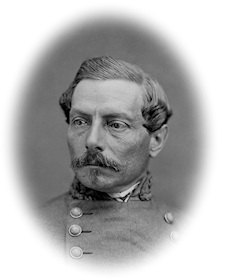
HEADQUARTERS PROVISIONAL ARMY, C. S. A.,
Charleston, S.C., April 16, 1861.
SIR: I have the honor to submit the following summary statement of the circumstances of the surrender of Fort Sumter: —
On the refusal of Major Anderson to engage, in compliance with my demand, to designate the time when he would evacuate Fort Sumter, and to agree meanwhile not to use his guns against us, at 3.20 o’clock in the morning of the 12th instant I gave him formal notice that within one hour my batteries would open on him. In consequence of some circumstance of delay the bombardment was not begun precisely at the appointed moment, but at 4.30 o’clock the signal gun was fired, and within twenty minutes all our batteries were in full play. There was no response from Fort Sumter until about 7 o’clock, when the first shot from the enemy was discharged against our batteries on Cummings Point.
By 8 o’clock the action became general, and throughout the day was maintained with spirit on both sides our guns were served with skill and energy. The effect was visible in the impressions made on the walls of Fort Sumter. From our mortar batteries shells were thrown with such precision and rapidity that it soon became impossible for the enemy to employ his guns en barbette, of which several were dismounted. The engagement was continued without any circumstance of special note until nightfall, before which time the fire from Sumter had evidently slackened. Operations on our side were sustained throughout the night, provoking, however, only a feeble response.
On the morning of the 13th the action was prosecuted with renewed vigor, and about 7 ½ o’clock it was discovered our shells had set fire to the barracks in the fort. Speedily volumes of smoke indicated an extensive conflagration, and apprehending some terrible calamity to the garrison I immediately dispatched an offer of assistance to Major Anderson, which, however, with grateful acknowledgments, he declined. Meanwhile, being informed about 2 o’clock that a white flag was displayed from Sumter I dispatched two of my aides to Major Anderson with terms of evacuation. In recognition of the gallantry exhibited by the garrison I cheerfully agreed that on surrendering the fort the commanding officer might salute his flag.
By 8 o’clock the terms of evacuation were definitely accepted. Major Anderson having expressed a desire to communicate with the United States vessels lying off the harbor, with a view to arrange for the transportation of his command to some port in the United States, one of his officers, accompanied by Captain Hartstene and three of my aides, was permitted to visit the officer in command of the squadron to make provision for that object. Because of an unavoidable delay the formal transfer of the fort to our possession did not take place until 4 o’clock in the afternoon of the 14th instant. At that hour, the place having been evacuated by the United States garrison, our troops occupied it, and the Confederate flag was hoisted on the ramparts of Sumter with a salute from the various batteries.
The steamer Isabel having been placed at the service of Major Anderson, he and his command were transferred to the United States vessels off the harbor.
The urgency of immediate engagements prevents me from giving at present a more circumstantial narrative of the incidents connected with the capture of Fort Sumter. When the reports from the various commanders of batteries are received I will hasten to forward you a more detailed account.
In conclusion, I am happy to state that the troops, both officers and soldiers, of the Regulars, Volunteers, Militia, and Navy, by their energy, zeal, perseverance, labor, and endurance before the attack, and by their courage and gallantry during its continuance, exhibited all the characteristics of the best troops; and to my staff, Regular and Volunteer, I am much indebted for the prompt and complete execution of my orders, which had to be communicated in open boats during the bombardment to the different batteries then engaged.
I remain, sir, very respectfully, your obedient servant,
G. T. BEAUREGARD,
Brigadier-General, Commanding.
Hon. L. P. WALKER,
Secretary of War, Montgomery, Ala.
Statement of POW Worden—Confederate Correspondence
April 16, 2021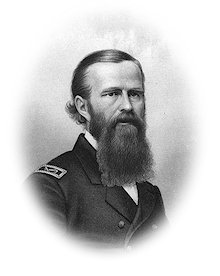
MONTGOMERY,
April 16, 1861.
Hon. L. P. WALKER,
Secretary of War, Montgomery:
SIR: I have the honor to submit the following statement in relation to my recent visit to Pensacola to your attention:
I left Washington City on the morning of April 7, with a communication from the Secretary of the Navy to Captain Adams, of the United States ship Sabine, and was informed by the Secretary that I would have no difficulty in making the communication to Captain Adams under the existing agreement. I arrived at Pensacola on the morning of the 11th instant, announced myself to Mr. LeBaron as an officer of the U. S. Navy, who sent an officer with me to General Bragg. I informed General Bragg that I had come from Washington, and desired to communicate with Captain Adams, of the Sabine. He wrote me a pass authorizing me to go to the Sabine, and upon handing it to me he asked if I had dispatches for Captain Adams. I replied that I had not written ones, but that I had a verbal communication to make to him from the Navy Department. I then asked him if I would be permitted to land on my return towards Washington. He replied that I would, provided Captain Adams or myself did nothing in violation of the agreement existing between them. I remarked that I knew nothing of the agreement he mentioned. I then left General Bragg and went to the navy-yard, from whence I embarked for the Wyandotte about 4 o’clock p.m. On reaching her I was informed by her commander that he could not carry me out to the Sabine that night, in consequence of the strong wind and rough sea on the bar.
During that evening Lieutenant Slemmer, of Fort Pickens, came on board, and I had a few moments’ social conversation with him. I had no dispatches for him whatever, and I gave him no information as to the nature of the communication which I had to make to Captain Adams. Of course he knew, as did every officer on board, that I came from the Navy Department to communicate with Captain Adams. On the next morning, the 12th instant, while waiting for the sea to subside on the bar, so that the Wyandotte could go out, one of the officers suggested that we should go on shore and take a look at Fort Pickens, to which I assented. We accordingly, about 9 o’clock a.m., landed there, and walked about the ramparts for half an hour, and then returned on board. During my visit to the fort I did not see Lieutenant Slemmer, as he was asleep and I did not desire to disturb him, as I had no object in seeing him, except to pay him the proper visit of courtesy on going within the limits of his command.
At about 10.30 or 11 o’clock a.m. the Wyandotte went out of the harbor and put me on board the Sabine, somewhere near 12 o’clock. I made my communication to Captain Adams, and stated to him what General Bragg had said in relation to the agreement between them. He, nevertheless, gave me a written order to return to Washington as “special messenger,” which order you have. Of course I proceeded to obey the order, and was landed by the Wyandotte at Pensacola about 5 o’clock p.m. I was told by Captain Adams that it was not necessary for me to see General Bragg on my return, and therefore I did not stop at his quarters.
I make this statement, ready with the solemnity of an oath to be confirmed. It is made, not with regard to personal safety, or of any consequences that might result to me personally, but purely in defense of my honor as an officer and a gentleman. Several officers in the Confederate service—among them I will mention Capt. D. N. Ingraham and Surg. W. F. Carrington—I think I can appeal to with confidence.
I respectfully submit this statement to the consideration of the honorable Secretary of War.
Respectfully, your obedient servant,
JOHN L. WORDEN,
Lieutenant, U. S. Navy.
To be measured.
April 16, 2021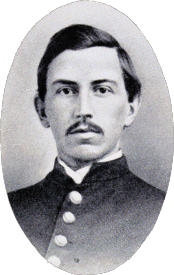
Tuesday, April 16th. To-morrow we are to meet at the armory, fall in, and march in a body to Develin’s clothing store, lower Broadway, there to be measured, each and all of us, for a uniform suit, to consist of dark blue jacket and sky-blue trousers. The jacket will have light blue shoulder-straps and cuffs, and will be made as quickly as possible, and forwarded to us wherever we may be. It is a thousand pities we cannot have them by Sunday, there will be such an enormous crowd to see us off, and in our every-day rig we shall look anything but soldierly.
Civil War Day-By-Day
April 16, 2021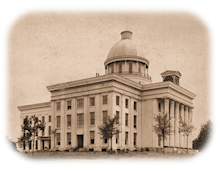
April 16, 1861
- The Confederate Congress passes a Conscription Act.
- Gov. Magoffin, of Kentucky, and Gov. Letcher, of Virginia, refused to furnish troops under the President’s proclamation. Gov. Harris, of Tennessee, and Gov. Jackson, of Missouri, also refused1
- Confederate States Government called for 32,600 additional troops.1
- A Chronological History of the Civil War in America by Richard Swainson Fisher, New York, Johnson and Ward, 1863
William Howard Russell by train in the South after Sumter.
April 15, 2021
Note: This particular diary entry–a document written in 1861–includes terms that are offensive to many today. No attempt will be made to censor or edit 19th century material to today’s standards.
Monday, April 15.–Up at dawn. Crossed by ferry to Portsmouth, and arrived at railway station, which was at no place in particular, in a street down which the rails were laid. Mr. Robinson, the superintendent, gave me permission to take a seat in the engine car, to which I mounted accordingly, was duly introduced to, and shook hands with the engineer and the stoker, and took my seat next the boiler. Can any solid reason be given why we should not have those engine sheds or cars in England? They consist of a light frame placed on the connection of the engine with the tender, and projecting so as to include the end of the boiler and the stoke-hole. They protect the engineer from rain, storm, sun, or dust. Windows at each side afford a clear view in all directions, and the engineer can step out on the engine itself by the doors on the front part of the shed. There is just room for four persons to sit uncomfortably, the persons next the boiler being continually in dread of roasting their legs at the furnace, and those next the tender being in danger of getting logs of wood from it shaken down on their feet. Nevertheless I rarely enjoyed anything more than that trip. It is true one’s enjoyment was marred by want of breakfast, for I could not manage the cake of dough and the cup of bitter, sour, greasy nastiness, called coffee, which were presented to me in lieu of that meal this morning.
But the novelty of the scene through which I passed atoned for the small privation. I do not speak of the ragged streets and lines of sheds through which the train passed, with the great bell of the engine tolling as if it were threatening death to the early pigs, cocks, hens, and negroes and dogs which walked between the rails – the latter, by-the-bye, were always the first to leave–the negroes generally divided with the pigs the honour of making the nearest stand to the train–nor do I speak of the miserable suburbs of wooden shanties, nor of the expanse of inundated lands outside the town. Passing all these, we settled down at last to our work: the stoker fired up, the engine rattled along over the rugged lane between the trees which now began to sweep around us from the horizon, where they rose like the bank of a river or the shores of a sea, and presently we plunged into the gloom of the primaeval forest, struggling as it were, with the last wave of the deluge.
The railroad, leaving the land, boldly leaped into the air, and was carried on frailest cobweb-seeming tracery of wood far above black waters, from which rose a thick growth and upshooting of black stems of dead trees, mingled with the trunks and branches of others still living, throwing out a most luxuriant vegetation. The trestle-work over which the train was borne, judged by the eye, was of the slightest possible construction. Sometimes one series of trestles was placed above another, so that the cars ran on a level with the tops of the trees ; and, looking down, we could see before the train passed the inky surface of the waters, broken into rings and agitated, round the beams of wood. The trees were draped with long creepers and shrouds of Spanish moss, which fell from branch to branch, smothering the leaves in their clammy embrace, or waving in pendulous folds in the air. Cypress, live oak, the dogwood, and pine struggled for life with the water, and about their stems floated balks of timber, waifs and strays carried from the rafts by flood or the forgotten spoils of the lumberer. On these lay tortoises, turtles, and enormous frogs, which lifted their heads with a lazy curiosity when the train rushed by, or flopped into the water as if the sight and noise were too much for their nerves. Once a dark body of greater size plashed into the current which marked the course of a river. “There’s many allygaitors come up here at times” said the engineer, in reply to my question; “but I don’t take much account of them.” [continue reading…]
“…rejoiced to find myself a real soldier..,”—Josiah Marshall Favill
April 15, 2021
(April 15, 1861)
I have actually joined the army and am going to the war as a high private in Company C of the Seventy-first New York Regiment, commanded by Captain Coles. The regiment has been accepted for three months’ service by the general government, and is to start for the front on Sunday next, April 21, 1861.
It was not so easy to join this regiment, as the armory was crowded with men, mostly fine young fellows, all crazy to be enrolled. Finding myself getting left, I went up to the Captain, who sat near by, and asked him if he would not make a point to squeeze me in. I told him I was very anxious to go, and gave him an account of my acquirements in the military line, which I urged might be of service to him. After some questions and agreeable chatting, he directed the clerk to take down my name, saying some one would be certain to back out at the last moment, and there would be room enough for all who really wanted to go.
I left the armory rejoiced to find myself a real soldier, and could hardly realize that in less than a week’s time I should be leaving home and marching to the front. I have always dreamed of a soldier’s life as an ideal one, and have been enthusiastic on all things military since I was old enough to read. Charles O’Malley, Tom Burke of Ours, and the Three Musketeers are mainly responsible for it, I think, but however that may be, I have learned to drill, to fence, to ride, and to shoot, and devour every kind of military history that comes in my way. During the Crimean War I was absorbed in the details of the siege of Sebastopol, and sought everywhere for anything published relating to it. [continue reading…]
Colonel Chesnut… told us how the surrender came about.—Mary Boykin Miller Chesnut.
April 15, 2021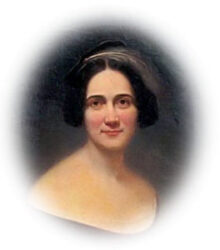
April 15th.—I did not know that one could live such days of excitement. Some one called: “Come out! There is a crowd coming.” A mob it was, indeed, but it was headed by Colonels Chesnut and Manning. The crowd was shouting and showing these two as messengers of good news. They were escorted to Beauregard’s headquarters. Fort Sumter had surrendered! Those upon the housetops shouted to us “The fort is on fire.” That had been the story once or twice before.
When we had calmed down, Colonel Chesnut, who had taken it all quietly enough, if anything more unruffled than usual in his serenity, told us how the surrender came about. Wigfall was with them on Morris Island when they saw the fire in the fort; he jumped in a little boat, and with his handkerchief as a white flag, rowed over. Wigfall went in through a porthole. When Colonel Chesnut arrived shortly after, and was received at the regular entrance, Colonel Anderson told him he had need to pick his way warily, for the place was all mined. As far as I can make out the fort surrendered to Wigfall. But it is all confusion. [continue reading…]
All for war.
April 15, 2021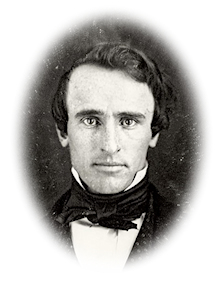
CINCINNATI, April 15, 1861.
DEAR UNCLE:–. . . We are all for war. The few dissentients have to run like quarter-horses. A great change for two weeks to produce. As the Dutchman said, “What a beeples.” Poor Anderson! What a chance he threw away. The Government may overlook or even whitewash it, but the people and history will not let him off so easily. I like it. Anything is better than the state of things we have had the last few months. We shall have nothing but rub-a-dub and rumors for some time to come.
All pretty well. Mother thinks we are to be punished for our sinfulness, and reads the Old Testament vigorously. Mother Webb quietly grieves over it. Lucy enjoys it and wishes she had been in Fort Sumter with a garrison of women. Dr. Joe is for flames, slaughter, and a rising of the slaves. All the boys are soldiers.
Sincerely,
R. B. HAYES.
S. BIRCHARD.
Gibraltar of America
April 15, 2021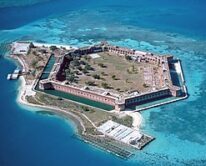
HEADQUARTERS DEPARTMENT OF FLORIDA,
Transport Steamship Atlantic, April 15, 1861.
Bvt. Maj. L. G. ARNOLD,
Commanding Fort Jefferson, Fla.:
MAJOR: My short stay at your post and the hurry of business prevented my conversing with you so freely as I could have wished on the defense of the fort. The importance of Fort Jefferson can hardly be overestimated, nor can I too strongly impress on you the importance of the constant exercise of every precaution and of the most unceasing vigilance against surprise. Your post may not improperly be considered the Gibraltar of America, and you should guard it with the same jealous vigilance you would if we were at war with a strong maritime power. No vessel, Government or merchant, should be allowed to approach without being boarded, and, if necessary, required to heave to for the purpose. Your guns should habitually be kept loaded and ready at a moment’s notice to be fired; a sufficiency of ammunition always prepared for immediate service, and the officers and men assigned to their positions, so that by day or night each can at a moment’s notice be at his post. Your drawbridge should always be raised at night, the embrasures closed and fastened, and the guards by day and night required to the observance of the greatest possible vigilance. The troops must be impressed with the necessity of almost constant fatigue in mounting guns, erecting batteries, laying platforms, &c., and other necessary work, and encouraged to a cheerful compliance with the exigencies of the service.
I am aware, major, of your zeal and ability, and of the excellent discipline that has characterized your command, and I doubt not that you will have anticipated these suggestions. If so, no harm is done, and I wish, if any here made may have escaped you, that you will without delay give them your attention.
I am, sir, very respectfully, your obedient servant,
HARVEY BROWN,
Colonel, Commanding.
Fort Jefferson, Tortugas
April 15, 2021
HEADQUARTERS DEPARTMENT OF FLORIDA,
Transport Steamship Atlantic, April 15, 1861.
Lieut. Col. E. D. KEYES,
Secretary to the General-in-Chief Washington, D.C.:
COLONEL: I wrote you at Key West, reporting our arrival there, and took from Fort Taylor some guns and stores necessary for our expedition, and detached from the companies of the fort and barracks thirty-three men to fill up in part the companies of the command to their maximum organization, intending to take the balance from Fort Jefferson. These men are required to fill vacancies caused by desertion or other absence at New York.
We left Key West at daybreak yesterday morning (the 14th), and arrived at Fort Jefferson at 1 p.m. I found this post in the good order to be expected from its vigilant commander. The present armament of the fort is thirteen 8-inch columbiads and a field battery, and 104 barrels gunpowder, 608 shells, 150 shot, and a vessel now at the wharf is unloading thirty 8-inch columbiads and twenty-four 24-pounder howitzers, with carriages, implements, &c. complete, with 250 barrels of powder, 2,400 8-inch shells, 600 round shot, and a proportioned quantity of fixed ammunition, so that this post may be considered secure from any force that the seceding States can bring against it. The whole lower tier of this work may with little labor be prepared for its armament. Some flagging and the traverse circles are the principal work to be done. On the recommendation of Captain Meigs, chief engineer, I have directed Major Arnold to have four water batteries, mounting three guns each, to be erected on the adjacent keys. This being done, with the support of one or two ships of war, the whole anchorage will be within command of our guns.
I would respectfully recommend that at Fort Jefferson for the 42-pounders ordered 8-inch unchambered columbiads be substituted, and that the wooden carriages of all three forts be replaced at the earliest possible day by iron ones. I took from Fort Jefferson twenty negro laborers for the Engineer Department, thirty-one privates to fill up the companies, so that they are now full, a field battery and four mountain howitzers, with implements and ammunition, some bricks, and a large flat. We got under way at 8 o’clock p.m., and very soon lost the flat. Her lashing-rigs and hooks, not being sufficiently strong, drew out and left her adrift. Lieutenants McFarland and Reese, of the Engineers, on the advice of the chief engineer, have been attached to this command.
I am, sir, very respectfully, your obedient servant,
HARVEY BROWN,
Colonel, Commanding.
Confederate Reports Related to Fort Sumter Battle Aftermath
April 15, 2021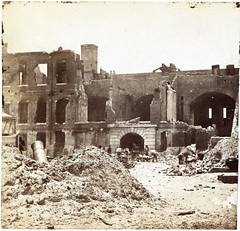
HEADQUARTERS PROVISIONAL FORCES, C.S. ARMY,
Charleston, S.C., April 15, 1861.
SIR: We have the honor to submit the following report of our visit to Fort Sumter on the 13th instant for the information of the brigadier-general commanding:
After reporting to the general the execution of the orders with which we were charged for Morris Island, and in company with Colonel Wigfall reporting the surrender of Fort Sumter, and also its dangerous condition from the fire occasioned by the hot shot from Fort Moultrie, we proceeded, by order of the brigadier-general commanding, immediately to Southern warf where we embarked on board the steamer Osiris for Fort Sumter, accompanied by the chief of the city fire department, Mr. Nathan, with a fire engine and its company. On our arrival at Fort Sumter we were met by Dr. Crawford, surgeon of the fort, who directed us to avoid the wharf, as it was in danger of blowing up at any moment from its mines. The doctor conducted us into the presence of Major Anderson, on the opposite side of the fort from the wharf, we entering the fort through an embrasure. We found the barracks totally destroyed by fire, occasioned by our shells and hot shot. We stated to Major Anderson that we had been sent to Fort Sumter by General Beauregard with a fire engine, to offer assistance to extinguish his fire and to render any other assistance he might require, and also Surgeon-General Gibbes, South Carolina, and assistants were present to administer to any wounded he might have. The major replied that he thanked the general for his kindness, but that his fire was almost burned out, and that he had but one man wounded, and he not seriously. We asked him if the magazine was safe. He replied he thought the lower magazine safe, though it was amid the burning ruins, and that he had thrown about one hundred barrels of powder into the water from the upper magazine during the action, for the safety of his command. We again asked him if he did not think it best to use the engine which accompanied us on the steamer, which lay out in the stream. He replied no—that he thought everything had been consumed that would burn. [continue reading…]
The Evacuation of Fort Sumter, April 1861
April 15, 2021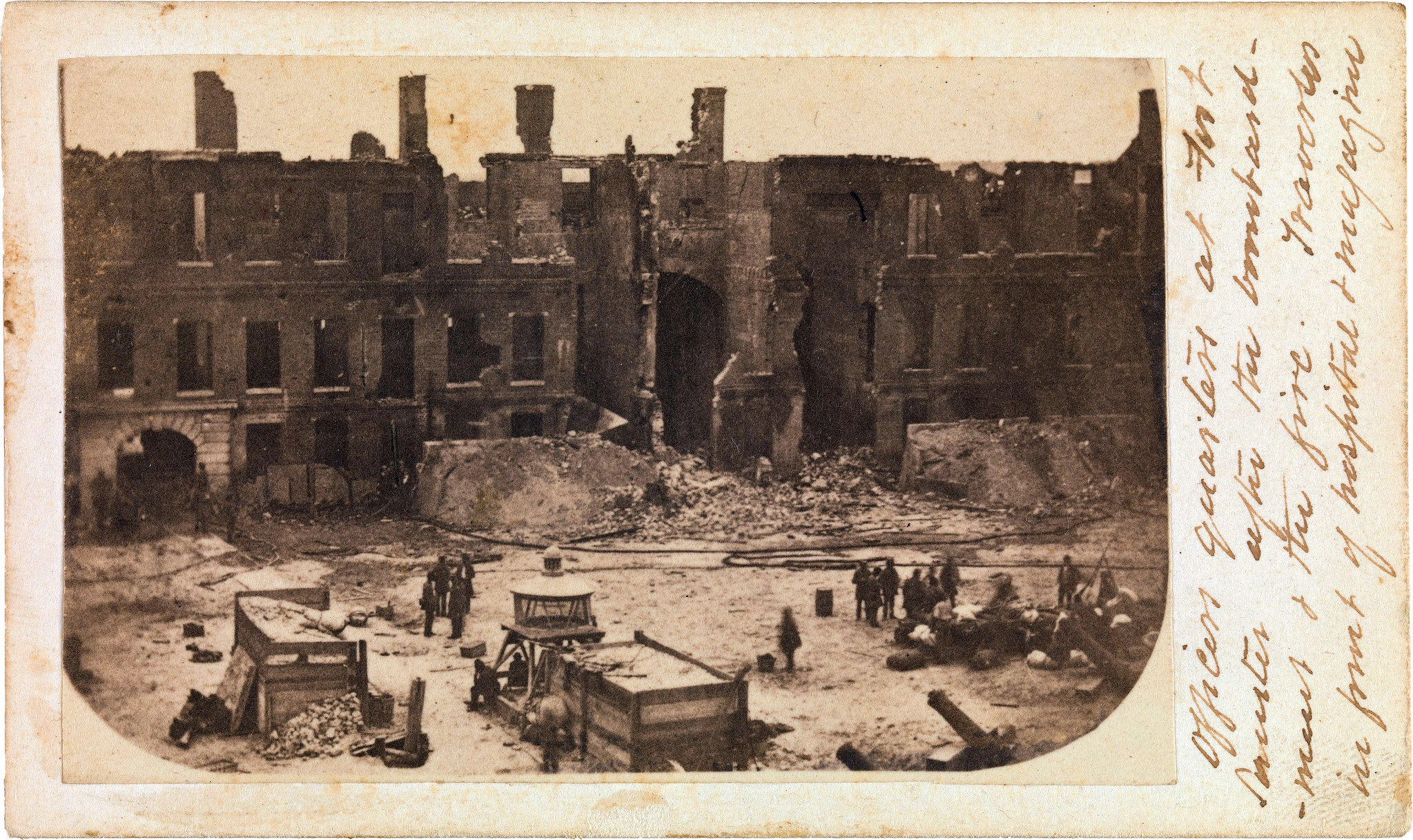
Title: The Evacuation of Fort Sumter, April 1861
Artist: Attributed to Alma A. Pelot (American, active Charleston, South Carolina, 1850s–1860s)
Artist: Attributed to Jesse H. Bolles (American, active Charleston, South Corlina, 1850s–1860s)
Publisher: Edward Anthony (American, 1818–1888)
Date: April 1861
Medium: Albumen silver print from glass negative
Dimensions:
Image: 1 15/16 × 3 1/8 in. (5 × 7.9 cm)
Mount: 3 3/8 in. × 4 3/4 in. (8.5 × 12 cm)
Classification: Photographs
Credit Line: Gilman Collection, Museum Purchase, 2005
Inscription: Inscribed in black ink on mount CR [sideways] and on album page, CL [sideways]: “Officers quarters at Fort Sumter after the // bombardment and the fire. [illegible] in front // of hospital and magazine”
Metropolitan Museum of Art image
___________
Mike’s notes:
Note – This image has been digitally adjusted for one or more of the following:
– fade correction,
– color, contrast, and/or saturation enhancement
– selected spot and/or scratch removal
– cropped for composition and/or to accentuate subject
“I learned from the Northern exchange papers, which still came to hand, that my office in Philadelphia, “The Southern Monitor,” had been sacked by the mob. It was said ten thousand had visited my office, displaying a rope with which to hang me.”—A Rebel War Clerk’s Diary
April 15, 2021
April 15th.–Great demonstrations made throughout the day, and hundreds of secession flags are flying in all parts of the city. At night, while sitting with Captain O. Jennings Wise in the editorial room of the Enquirer, I learned from the Northern exchange papers, which still came to hand, that my office in Philadelphia, “The Southern Monitor,” had been sacked by the mob. It was said ten thousand had visited my office, displaying a rope with which to hang me. Finding their victim had escaped, they vented their fury in sacking the place. I have not ascertained the extent of the injury done; but if they injured the building, it belonged to H. B., a rich Republican. They tore down the signs (it was a corner house east of the Exchange), and split them up, putting the splinters in their hats, and wearing them as trophies. They next visited the mansion of Gen. P., who had made his fortune dealing in cotton, and had been a bold Northern champion of Southern rights. But the general flinched on this trying occasion. He displayed the stars and stripes, and pledged “the boys” to lead them in battle against the secessionists.
During the evening, a procession with banners and torch-lights came up the street and paused before the Enquirer office. They called for Captain Wise, and I accompanied him to the iron balcony, where he made them a soul-stirring speech. At its conclusion, he seized me by the arm and introduced me to the crowd. He informed them of the recent proceedings in Philadelphia, etc., and then ceased speaking, leaving me to tell my own story to the listening multitude. That was not my fault; I had never attempted to make a public speech in my life; and I felt that I was in a predicament. Wise knew it, and enjoyed my embarrassment. I contrived, however, to say to the people that the time for speaking had gone by, and there was no time left for listening. They proceeded up the street, growing like a snow-ball as they rolled onward. At every corner there were cheers uttered for Davis, and groans for Lincoln.
Upon returning to my boarding-house (the hotel being found too expensive), kept by Mrs. Samuels, and her sister, Miss Long, I found the ladies making secession flags. Indeed, the ladies everywhere seem imbued with the spirit of patriotism, and never fail to exert their influence in behalf of Southern independence.
To-day the secession fires assumed a whiter heat. In the Convention the Union men no longer utter denunciations against the disunionists. They merely resort to pretexts and quibbles to stave off the inevitable ordinance. They had sent a deputation to Washington to make a final appeal to Seward and Lincoln to vouchsafe them such guarantees as would enable them to keep Virginia to her moorings. But in vain. They could not obtain even a promise of concession. And now the Union members as they walk the streets, and even Gov. Letcher himself, hear the indignant mutterings of the impassioned storm which threatens every hour to sweep them from existence. Business is generally suspended, and men run together in great crowds to listen to the news from the North, where it is said many outrages are committed on Southern men and those who sympathize with them. Many arrests are made, and the victims thrown into Fort Lafayette. These crowds are addressed by the most inflamed members of the Convention, and never did I hear more hearty responses from the people.
Ruins of Fort Sumter, Charleston Harbor, S.C.
April 15, 2021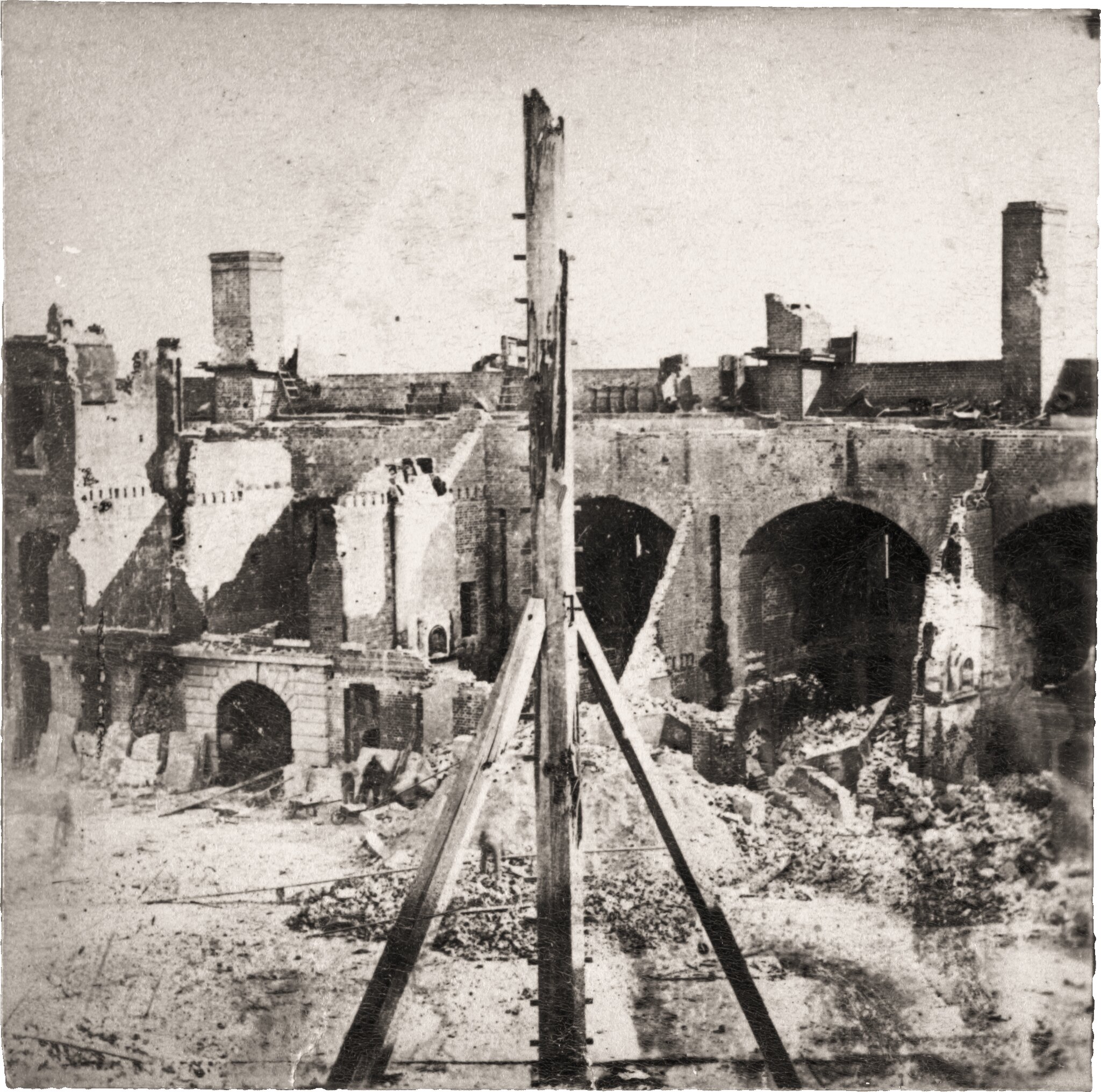 Title: [Ruins of Fort Sumter, Charleston Harbor, S.C.]
Title: [Ruins of Fort Sumter, Charleston Harbor, S.C.]
Creator(s): Osborn & Durbec, photographer
Date Created/Published: [1861 April]
Medium: 1 photographic print on stereo card : albumen ; 8 x 18 cm.
Summary: Stereograph showing a wall of casemates, a flagpole, and other debris inside of Fort Sumter.
Reproduction Number: LC-DIG-stereo-1s02596 (digital file from original stereograph, front) LC-DIG-stereo-2s02596 (digital file from original stereograph, back) LC-USZ62-55302 (b&w film copy neg. of half stereo) LC-USZ62-106831 (b&w film copy neg. of full stereo)
Rights Advisory: No known restrictions on publication.
Call Number: LOT 4166-C, no. 219 [P&P]
Repository: Library of Congress Prints and Photographs Division Washington, D.C. 20540 USA hdl.loc.gov/loc.pnp/pp.print
Notes:
….Title devised by Library staff.
….Manuscript note on back of stereo: Fort Sumter after Gen. Anderson[?] flag staff was shot away by shot from […].
….Original photograph by Osborn & Durbec reprinted by Quinby & Co. (Date and other information based on New-York Historical Society image and information from Anne Peterson and Bob Zeller).
….Forms part of: Civil War Photograph Collection (Library of Congress).
Library of Congress image
___________
Mike’s notes:
This is from the left side image from the stereograph card.
Note – This image has been digitally adjusted for one or more of the following:
– fade correction,
– color, contrast, and/or saturation enhancement
– selected spot and/or scratch removal
– cropped for composition and/or to accentuate subject
“Washington will soon be a great Military Camp.”—Horatio Nelson Taft
April 15, 2021
MONDAY 15
It seems pretty probable that “Sumpter” is taken but I think that we cannot rely entirely upon the news. There seems to be a great war spirit up throughout the Country. Washington will soon be a great Military Camp. My wife is not so much frightened today. I think we will not hurry in getting the family off. It has rained some today, and it [is] threatening a storm tonight. Applicants for office are less pertinacious than they were and many have left for their homes. I was down at Willards. The same crowd seems to be there still.
The three diary manuscript volumes, Washington during the Civil War: The Diary of Horatio Nelson Taft, 1861-1865, are available online at The Library of Congress.
Fort Sumter interior with a soldier standing near the artillery
April 15, 2021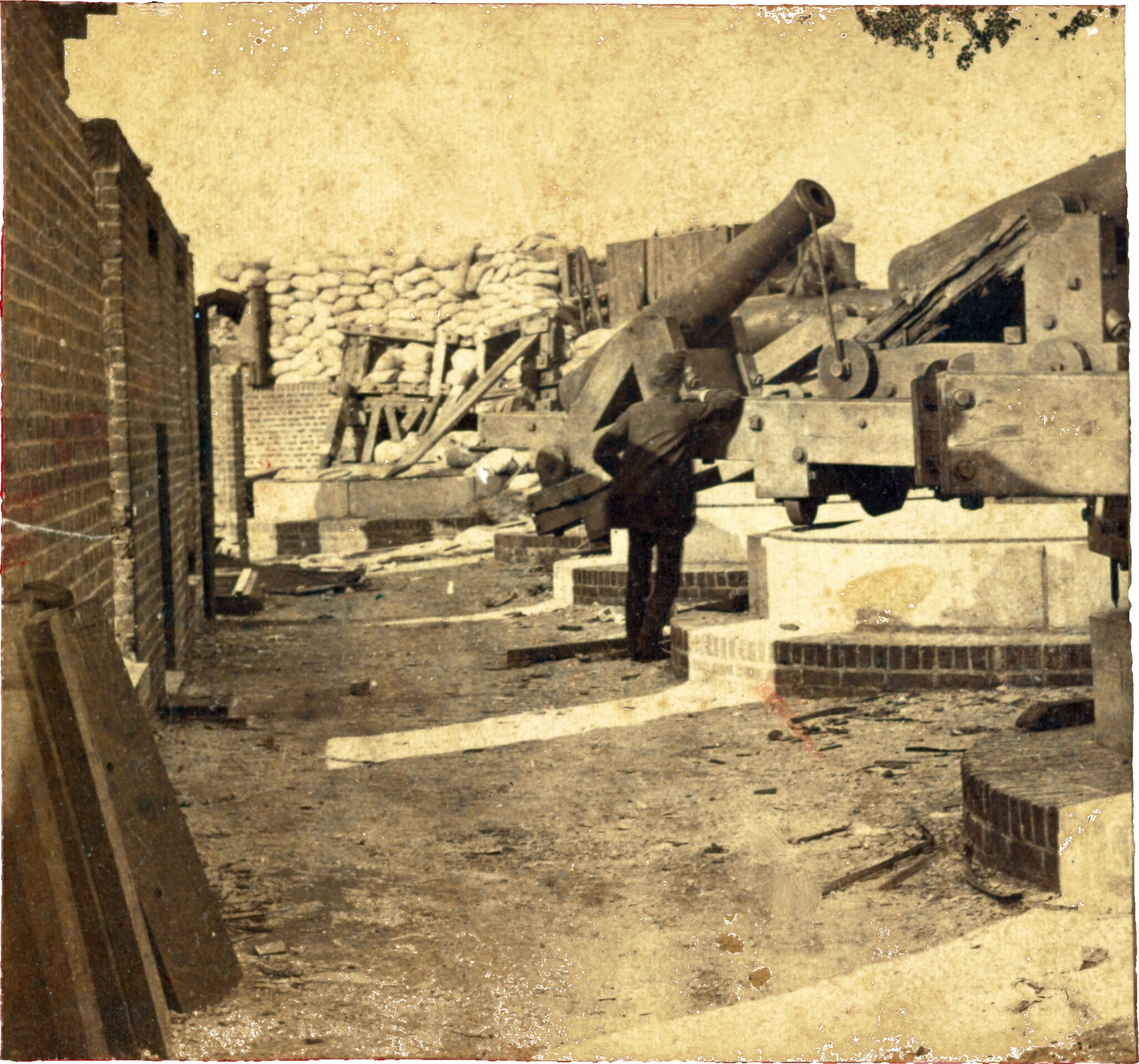
Title: [Fort Sumter interior with a soldier standing near the artillery]
Creator(s): Osborn & Durbec, photographer
Date Created/Published: Charleston, S.C. : Osborn & Durbec’s Southern Stereoscopic & Photographic Depot, 223 King Street, [between 1860 and 1861]
Medium: 1 photograph : print on card mount ; sheet 8.5 x 17 cm (stereograph format)
Summary: Photograph shows a dismounted gun from the parapet at Fort Sumter after the bombardment.
Reproduction Number: LC-DIG-stereo-1s03912 (digital file from original item, front) LC-DIG-stereo-2s03912 (digital file from original item, back)
Rights Advisory: No known restrictions on publication.
Call Number: LOT 14110-1, no. 33 (H) [P&P] LOT 15015-1, no. 33 (former call number)
Repository: Library of Congress Prints and Photographs Division Washington, D.C. 20540 USA hdl.loc.gov/loc.pnp/pp.print
Notes:
….Purchase; Robin Stanford; 2015; (DLC/PP-2015:022).
….Title from inventory and item.
….Osborn & Durbec’s label on verso, inscribed no. “17”.
….Forms part of: The Robin G. Stanford Collection.
….Digitized 2015 Funding from Center for Civil War Photography.
Library of Congress image
___________
Mike’s notes:
This is from the left side image from the stereograph card.
Note – This image has been digitally adjusted for one or more of the following:
– fade correction,
– color, contrast, and/or saturation enhancement
– selected spot and/or scratch removal
– cropped for composition and/or to accentuate subject
Village Life in America.
April 15, 2021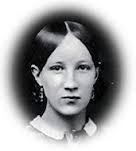
April 15.—The storm has broken upon us. The Confederates fired on Fort Sumter, just off the coast of South Carolina, and forced her on April 14 to haul down the flag and surrender. President Lincoln has issued a call for 75,000 men and many are volunteering to go all around us. How strange and awful it seems.
A casemate gun during the conflagration
April 15, 2021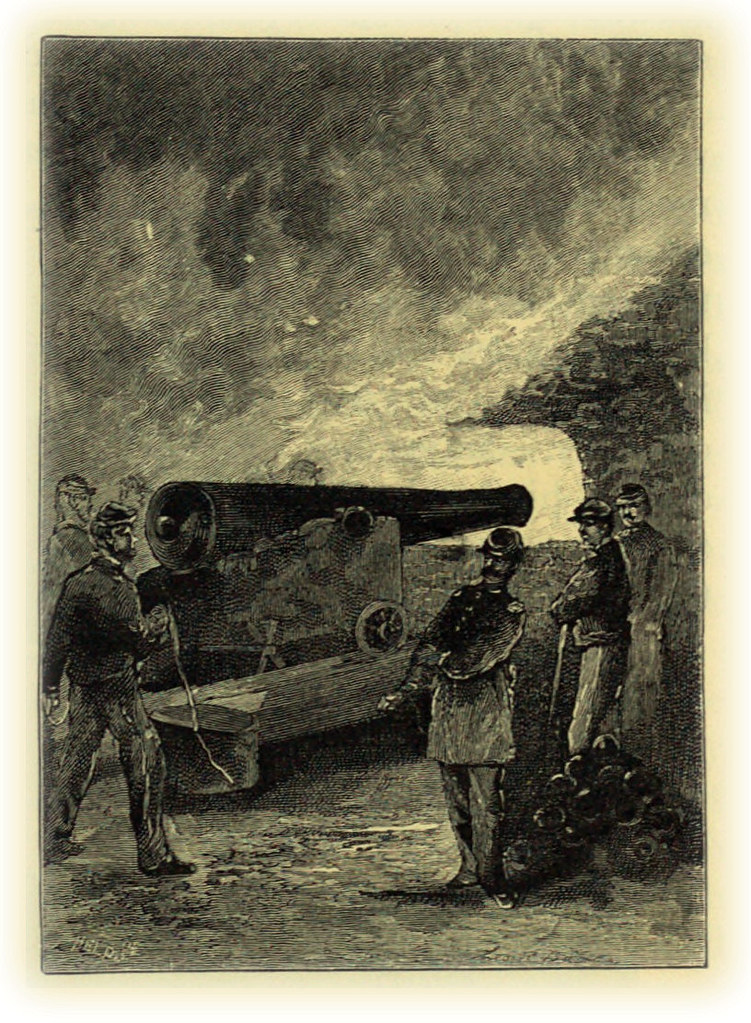 Page 71 Battles and Leaders of the Civil War
Page 71 Battles and Leaders of the Civil War
Chester, James. “Inside Sumter in ’61.” Essay in Battles and Leaders of the Civil War, edited by Clarence Clough Buel and Robert Underwood Johnson, Vol. 1. New York, NY: The Century Co., 1887.
There seems to be a determination on the part of the Northern Government to war with us.
April 15, 2021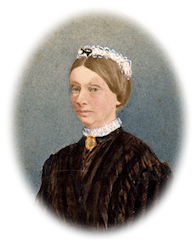
15 [April]
This morning we received a very pleasant visit from Charlotte, she feels but does not know how to express herself. Mr Aiken also came over and paid a very pleasant visit. He told us of the early history of General Boregard, he was a graduate of West Point & the second honour man, he had become very much attached to Virginia Scott, the daughter of Gen. Scott, & was refused by both parents but accepted by the young lady, she wrote to him but his letters were repressed and hers ceased after a time. This preyed on her health, she went into the Catholic Convent at George Town, and there died, before her death she sent for Gen. Boregard and saw him, he explained to her that he had always written, the letters were kept from her. She died, but 6 Months after he married another. “Men have died and worms have eaten them but not for love”.—(And now has a second wife).
In this days paper there is an account of the evacuating of the Fort Sumpter. Anderson has gone to the Fleet, this is the first time the U.S. Flag has been lowered, and now to the Palmetoe Flag.—
There seems to be a determination on the part of the Northern Government to war with us. When Major Anderson fired the salute to his Flag, 5 of his men were wounded, & 1 of them died immediately, the other not expected to live. This is very strange. I think my State has behaved most entirely according to the dictates of humanity, & true courage, in the treatment of the people in this Fort, they were fed, and beaten, & honourably dismissed.—
We have done well, & I this morning read a commendation in the papers “the World”, an Abolition journal, of the conduct of South Carolina, “throughout this contest & since secession”. The unselfish bravery with which she had conducted herself”.— May God bless and keep us, is my prayer, and may peace be restored to these States, may we each, North, & South—Governed by those who best understand our rights & our wants, I mean ourselves, be good neighbors & help each other on in the road to prosperity.—
On Sunday the scene in St. Philips was very affecting. Our Bishop Davis, now very feeble and blind was led up to the pulpit and returned thanks to Almighty God for his protection & his mercies. He, too had a relative among the troops.—Mrs Wayne went down to the City on Saturday and the cars being very much crowded & late in getting down. Lewis had to charge himself with the getting these two Mrs W. & her Mitchel in a carriage. It was 12 o’clock at night before they all got at home. Lewis found no one but his father at home & he seems quite well, the war agrees with him.